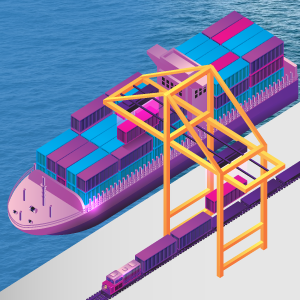Tutored training

Agriculture in International Trade Agreements (AITA) – special edition for CARICOM
26/04/2022
The Food and Agriculture Organization of the United Nations (FAO) and the Caribbean Community (CARICOM) are jointly proposing this virtual course entitled "Agriculture in International Trade Agreements (AITA)”, which combines online content that can be self-managed by each student, complemented by live webinars on broad conceptual frameworks and approaches to understanding and addressing international agreements on agriculture and international agrifood trade in the Caribbean.
This course informs the treatment of agriculture in the World Trade Organization (WTO) Agreement on Agriculture (AoA) and regional trade agreements (RTAs) and aims to support policy makers to develop and implement appropriate agricultural development and food security strategies.
Course overview:
Name: Agriculture in International Trade Agreements (AITA) – special edition for CARICOM
Code: AITAEN042023
Language: English
Type: Virtual course
Duration: 16 chronological hours to be taken in 4 weeks (4 to 5 hours per week).
Modality and Methodology:
The strategy used in this virtual course to share knowledge and exchange experiences is characterized by virtuality, with approximately 80% of the virtual activities asynchronous and 20% synchronous in nature. It is estimated that the time required for learning can vary between 4 to 5 hours per week, and it is advisable to hold 90-minute sessions 3 times per week. The methodology selected for this virtual course contains three types of activities:
- Self-learning modules, with asynchronous modality: Includes two online learning modules. These modules are developed through self-learning, being the participant's responsibility the construction of his/her own knowledge. They are structured in units for sequential exploration, i.e., once a topic has been completely reviewed, it is possible to access the next one. They will be delivered entirely online, combining self-paced teaching.
- Webinars: 3 webinar sessions and a forum for interaction among participants. The objective of these sessions is to strengthen the exchange of experiences. The webinars will include keynote presentations from experts from FAO, CARICOM Secretariat and other partner institutions.
Discussion board A discussion board will be open to share experiences and reflections among participants during the 4 weeks of the course.
Audience:
- Government officials and public servants involved in the implementation of trade-related public programs, initiatives, negotiations.
- Representatives of the private sector and academia.
- Representatives of participating organizations.
A selection process will be carried out for participants, who will be contacted by FAO Training.
General objective:
To provide tools that will enable participants to acquire and/or deepen their knowledge of international trade, and the main trade policy instruments related to agricultural trade for the Caribbean.
Specific objectives:
- To strengthen capacities for analyzing the international economic situation and policies related to international trade.
- To understand the different trade policy instruments, the functioning of the multilateral trade system and the development of mega trade agreements and the implications for the agricultural sector.
- To become familiar with new international trade issues, especially those related to agriculture that have an impact on the Caribbean.
Contents:
- Webinar 1 Course Presentation and opening remarks. Keynote presentations on the Relevance of the WTO for agri-food trade.
- Unit 1: World Trade Organization (WTO) Agreement on Agriculture (AoA)"
- Lesson 1.1 – Agriculture in the General Agreement on Tariffs and Trade (GATT) and the WTO AoA provisions on Market Access
- Lesson 1.2 – The WTO AoA provisions on Domestic Support and Export Competition
- Lesson 1.3 – The WTO AoA implementation and the Doha Round negotiations
- Webinar 2 How non-tariff barriers affect trade.
- Unit 2 - Non-Tariff Measures (NTMs) in agriculture and related WTO agreements
- Lesson 2.1: Introduction to NTMs in agriculture, the WTO Agreement on the Application of Sanitary and Phytosanitary (SPS) measures
- Lesson 2.2: The WTO Trade Facilitation Agreement, Technical Barriers to Trade (TBT) Agreement and other related rules
- Webinar 3 Challenges for the Caribbean integration process.
- Unit 3 - Agriculture in Regional Trade Agreements (RTAs)
- Lesson 3.1 – Trends in Regional Trade Agreements (RTAs)
- Lesson 3.2 – RTA provisions on tariffs, TRQs, SPS and TBT
- Lesson 3.3 – RTA provisions on Export Restrictions, Export Duties and Rules of Origin
Evaluation and passing requirements:
To approve the virtual course, participants must submit the final evaluation (questionnaire) with a minimum of 70% of achievement and attend 4 out of 6 webinars.
The evaluation will be measured according to the following percentage scale:
• Approved: 70 to 100 points.
• Failed: 0 to 69 points.
Better to which it belongs: all the betters.
Responsible Officer:
- Pablo Rabczuk – Political Affairs and Liaison Officer.
- Milagro Matus – CARICOM Secretariat
